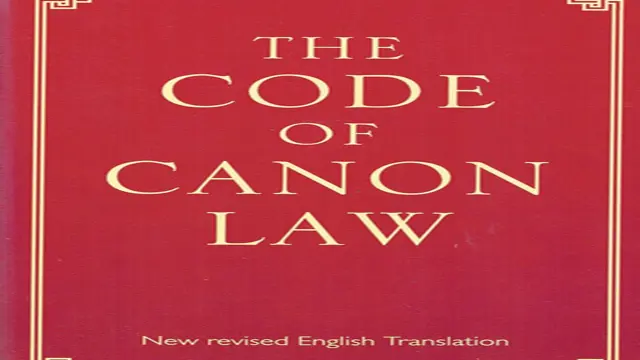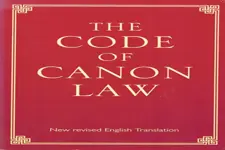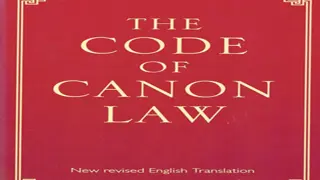
Online Canon Law Diploma
Canon Law Diploma With free certificate and transcript
Elearn College
Summary
- Diploma Certificate and Transcript - Free
- Exam(s) / assessment(s) is included in price
Add to basket or enquire
Overview
Embarking on a journey through the Canon Law Diploma course reveals an immersive online learning experience that meticulously addresses the myriad aspects of ecclesiastical law. This online programme, constructed with care and scholarly insight, provides participants with a comprehensive understanding of the rules and regulations that guide the internal governance of the Christian community.
From the inception of the course, participants explore a well-structured introduction to Canon Law, establishing a robust foundational knowledge that becomes a cornerstone for more advanced study. The course deftly explores the intricacies of ecclesiastical regulations, ensuring that the richness and complexity of the subject matter are unravelled with clarity and expertise.
Moving forward, the course intricately discusses the sources and codification of Canon Law, imparting insights into its historical evolution and codification processes. As students navigate through the material, they will gain a profound understanding of how laws and regulations have been historically articulated and adapted to meet the needs and challenges of the Church.
In subsequent portions, the exploration of ecclesiastical offices and ministries, along with sacraments and liturgy, provide an in-depth view into the organisational structures and sacred rituals of the Church. The Canon Law Diploma not only illuminates the structural and spiritual aspects of ecclesiastical governance but also ensures that learners gain a holistic view of its multi-faceted nature.
One of the pivotal aspects that the course delineates is the exploration of legal procedures and penalties within ecclesiastical structures. This provides a nuanced view into how justice is served within the Church, ensuring that governance is not only effective but also adheres to a moral and ethical code that is congruent with its teachings.
Further, the course addresses the critical subject of property and finance within the Church. Participants get an opportunity to delve into the specifics of how ecclesiastical properties are managed, utilized, and financed, ensuring that the material aspects of Church governance are not neglected in their study.
Course media
Description
A salient feature of this curriculum is its exploration of education and Canon Law. The interplay between ecclesiastical governance and educational frameworks is examined with meticulous care, thus illuminating the ways in which the Church interacts with and guides educational paradigms.
As participants traverse through the course, the exploration of ecumenism and interfaith relations brings to light the Church’s relationship with different faiths and denominations. The Canon Law Diploma provides learners with a keen understanding of how dialogues and relationships are formed and maintained with various faith communities, thereby ensuring peaceful coexistence and mutual respect among varied religious entities.
Navigating through personal and moral issues in Canon Law, the course further enriches the participant’s understanding of how the Church addresses, navigates, and provides guidance on numerous personal and societal moral dilemmas. It crafts a pathway for learners to comprehend how Canon Law effectively interfaces with myriad moral and ethical questions that arise within and outside the ecclesiastical community.
Finally, a forward-looking exploration into the future of Canon Law offers participants not only a historical and contemporary view but also a prospective insight into possible evolutionary paths of ecclesiastical law. This ensures that learners are not only rooted in the present but are also able to engage thoughtfully with future developments and challenges that may arise in the realm of Canon Law.
In conclusion, the Canon Law Diploma is a meticulously crafted online course that provides an immersive and comprehensive journey through ecclesiastical law, ensuring that participants emerge with a robust, multifaceted understanding of the subject. This diploma, while deeply rooted in the traditional and contemporary aspects of Canon Law, also equips learners with the ability to thoughtfully engage with the future developments of ecclesiastical governance. It is a course that not only educates but also invites reflection and engagement with one of the most profound aspects of Christian governance and spirituality.
What you will learn
1:Introduction to Canon Law
2:Sources and Codification of Canon Law
3:Ecclesiastical Offices and Ministries
4:Sacraments and Liturgy
5:Legal Procedures and Penalties
6:Property and Finance within the Church
7:Education and Canon Law
8:Ecumenism and Interfaith Relations
9:Personal and Moral Issues in Canon Law
10:The Future of Canon Law
Who is this course for?
Anyone having an interest in Canon Law
Requirements
There are no entry requirements. No background training or qualifications are required. Anyone can enrol at any time, beginners, intermediates and experienced all year round.
Career path
On successful completion, learners will have a comprehensive understanding of the principles and practices of Canon Law and will have developed some essential skills required to take their first steps into this industry. Career opportunities in this field include:
Canon Lawyer
Diocesan Chancellor
Tribunal Judge
Canon Law Consultant
Questions and answers
Currently there are no Q&As for this course. Be the first to ask a question.
Certificates
Diploma Certificate and Transcript
Digital certificate - Included
Reviews
Currently there are no reviews for this course. Be the first to leave a review.
Legal information
This course is advertised on reed.co.uk by the Course Provider, whose terms and conditions apply. Purchases are made directly from the Course Provider, and as such, content and materials are supplied by the Course Provider directly. Reed is acting as agent and not reseller in relation to this course. Reed's only responsibility is to facilitate your payment for the course. It is your responsibility to review and agree to the Course Provider's terms and conditions and satisfy yourself as to the suitability of the course you intend to purchase. Reed will not have any responsibility for the content of the course and/or associated materials.



